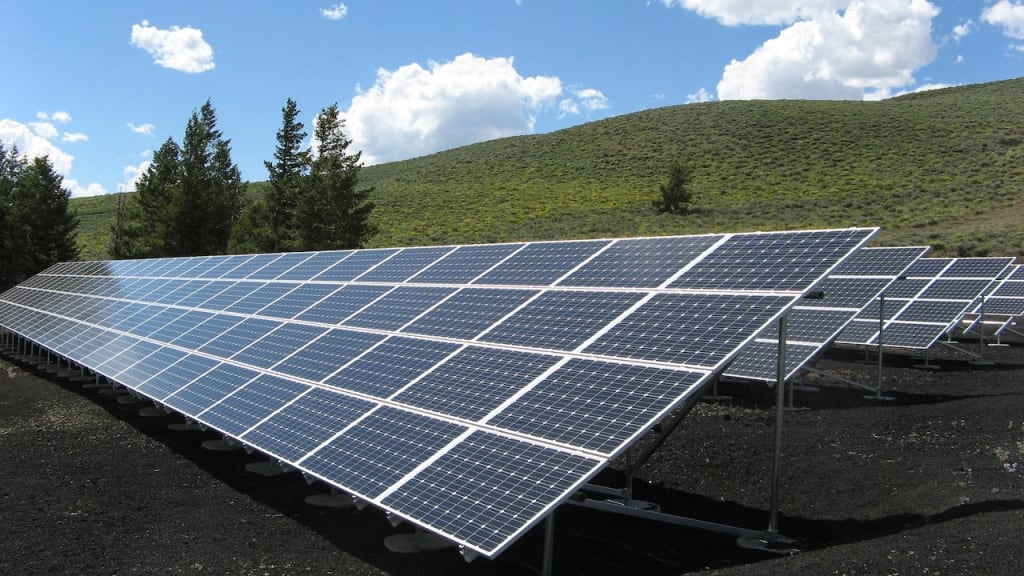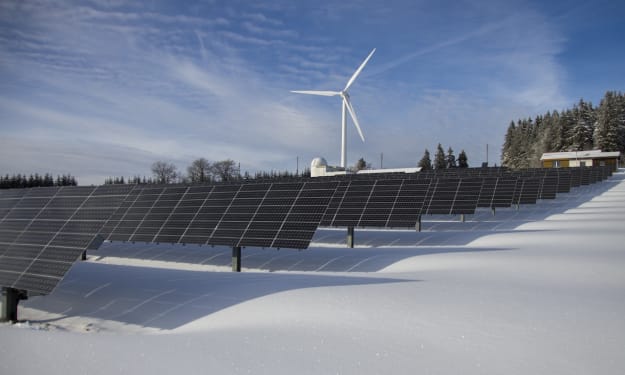The Rise of Green Tech: Innovations Driving Sustainability
Towards a Sustainable Future

Introduction
As concerns about climate change and environmental degradation continue to grow, the world is witnessing a significant shift towards green technologies and sustainable solutions. With the pressing need to reduce carbon emissions and preserve natural resources, innovators around the globe are developing groundbreaking technologies to create a more sustainable future. This article explores the rise of green tech and highlights some of the innovative solutions that are driving sustainability.
Solar Power: Harnessing the Sun's Energy
Solar power has emerged as a leading green technology, revolutionizing the energy industry. As renewable energy sources gain popularity, solar panels have become more efficient and affordable. With advancements in photovoltaic technology, the cost of solar power generation has significantly decreased, making it a viable option for homeowners, businesses, and even entire communities. The integration of solar power in buildings, along with the development of large-scale solar farms, has paved the way for a greener energy landscape.
Wind Power: Tapping into Nature's Force
Another key player in the green tech revolution is wind power. Harnessing the power of the wind through wind turbines has proven to be an effective method of generating electricity without harmful emissions. As wind turbine technology improves, the efficiency and reliability of wind farms continue to increase. Offshore wind farms, situated in coastal areas with strong winds, offer immense potential for clean energy production. These wind farms are capable of powering entire cities and significantly reducing reliance on fossil fuels.
Electric Vehicles: Driving Towards a Sustainable Future
Transportation is a major contributor to greenhouse gas emissions. However, the rise of electric vehicles (EVs) is transforming the automotive industry and reducing the carbon footprint of transportation. EVs run on electricity instead of fossil fuels, eliminating tailpipe emissions. With advancements in battery technology, EVs now offer longer driving ranges and faster charging times. Additionally, the expansion of charging infrastructure is making EV adoption more feasible for consumers worldwide. The combination of EVs and renewable energy sources creates a synergistic effect, enabling truly sustainable transportation systems.
Energy Storage: Balancing the Renewable Equation
One of the challenges faced by renewable energy sources is intermittent generation. The development of efficient energy storage systems is crucial to overcome this limitation. Innovations in battery technology, such as lithium-ion batteries, are enabling the storage of excess renewable energy for later use. Energy storage solutions enhance the reliability and stability of renewable energy grids by ensuring a constant power supply even when the sun isn't shining or the wind isn't blowing. This technology has immense potential to transform the energy landscape and promote the widespread adoption of renewable energy sources.
Smart Grids: Intelligent Energy Distribution
Smart grids represent a technological breakthrough in energy distribution and management. These advanced systems utilize digital communication and automation to optimize energy usage, reduce waste, and enhance grid resilience. Smart grids enable real-time monitoring of energy consumption, allowing utilities and consumers to make informed decisions about their energy usage. By integrating renewable energy sources, energy storage, and smart appliances, these grids facilitate efficient energy distribution and support the transition towards a sustainable and decentralized energy ecosystem.
Circular Economy: Redefining Resource Management
In addition to energy innovations, green tech is driving the concept of the circular economy, which focuses on maximizing resource efficiency and minimizing waste. Sustainable materials and manufacturing processes are gaining prominence, ensuring products have a longer lifespan and are easier to recycle or re-purpose. Innovations such as bio-based plastics, 3D printing, and advanced recycling technologies are revolutionizing industries and reducing the reliance on finite resources. The circular economy aims to create a closed-loop system, where waste is minimized, and resources are continually reused, leading to a more sustainable and resilient economy.
Conclusion
The rise of green tech represents a crucial turning point in the pursuit of sustainability.





Comments
There are no comments for this story
Be the first to respond and start the conversation.